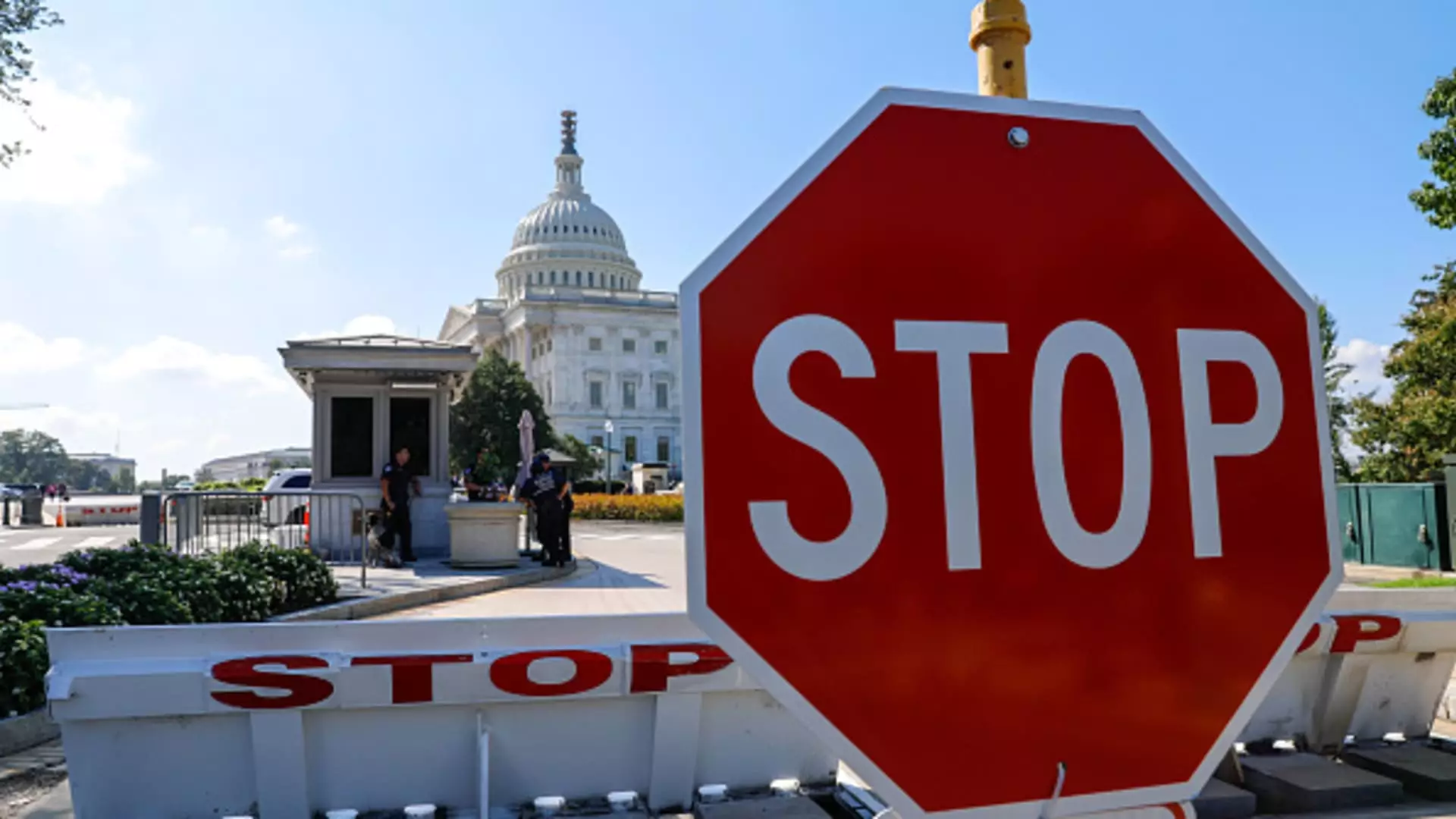The collapse of Ukraine aid in Congress has been a long time coming, and Senate Republican leader Mitch McConnell’s fears have become a reality. McConnell had repeatedly warned that political support for Ukraine was at risk, as a vocal minority of Republican lawmakers intensified their efforts against sending U.S. money overseas to fight against Russia. Despite McConnell’s attempts to steer his party’s hard-right flank, a scaled-back $6 billion military and civilian aid package for Ukraine failed to pass in last week’s deal to avoid a U.S. government shutdown. This failure not only dealt a significant blow to the administration’s efforts to protect Ukraine but also highlighted the power of a minority of Republican lawmakers who are allied with Donald Trump and willing to oppose the majority.
The collapse of Ukraine aid reveals the challenges that lie ahead in Washington. The hardened band of Republican lawmakers, who are just a minority in Congress but have aligned themselves with Trump, is flexing their power to overcome the will of the majority. This minority’s ability to derail critical aid to Ukraine raises serious concerns about the future of bipartisan cooperation in Washington. President Joe Biden acknowledged his worry about the situation but expressed confidence that the majority of members from both parties support funding Ukraine. However, the path forward remains uncertain, and the collapse of Ukraine aid is an ominous sign of the tensions within Congress.
The failure to approve Ukraine aid represents a substantial setback for the Biden administration’s ambitions to lead a Western alliance in protecting Ukraine. Despite overwhelming bipartisan support in Washington for countering Russian aggression, the inability to secure funding for Ukraine aid demonstrates the challenges faced in navigating the political landscape. While the fighting in Ukraine continues, the lack of financial support hampers efforts to strengthen the young democracy and defend against Russian incursions. This setback underscores the urgency for finding a solution and raises questions about the effectiveness of the U.S. government’s response to international conflicts.
Aid in Jeopardy
The collapse of Ukraine aid has ignited a blame game within Washington’s political corridors. With aid to Ukraine hanging in the balance, some Republican lawmakers, such as Rep. Marjorie Taylor Greene, argue against allocating funds and instead advocate for using the money to secure the U.S.-Mexico border. This divergence of priorities highlights the deep divisions within the Republican Party and underscores the challenges facing the Biden administration in garnering bipartisan support for critical foreign assistance. The collapse of Ukraine aid further exposes the inadequacy of the government’s ability to work collaboratively and overcome ideological differences for the greater good.
Mitch McConnell’s efforts to build support for Ukraine aid were met with significant challenges from within his own party. Despite his long-standing support for Ukraine, McConnell faced an uphill battle due to the lack of broader backing for the funding request. Democrats on Capitol Hill had not fully prioritized Ukraine aid in their negotiations with House Republicans regarding budget cuts to keep the government open, while Republican House Speaker Kevin McCarthy faced internal pressure from hard-liners within his party. This confluence of factors hampered McConnell’s ability to rally support, ultimately leading to the collapse of Ukraine aid.
As the deadline to fund the government approached, McConnell realized that securing the full $24 billion request for Ukraine aid was impossible due to insufficient support. Rather than abandon the cause entirely, McConnell urged the White House to explore alternative avenues for funding Ukraine, including potential transfers or reprogramming of existing funds. While the Senate managed to pass a $6 billion package for Ukraine, the collapse of Ukraine aid became inevitable as the House faced its own internal challenges. Hard-line Republicans in the House, including Marjorie Taylor Greene, effectively forced McCarthy to remove $300 million in Ukraine security assistance funds from a defense funding bill. This shift in sentiment further eroded the chances of saving Ukraine aid and marked the encroachment of a minority faction within the Republican Party on the majority’s decision-making process.
A Bitter Aftermath
The aftermath of the collapse of Ukraine aid has led to a flurry of political blame and a sense of urgency within the Biden administration. McCarthy’s commitment to Ukraine, beyond what was included in the final package, has come under scrutiny. However, McCarthy denies any secret deal with Biden on Ukraine and claims that funds for Ukraine would remain intact. Despite these assertions, the ousting of McCarthy from his position as House Speaker has left the fate of any potential fix for Ukraine funding uncertain. Biden’s planned speech on Ukraine aid hangs in the balance, pending the election of a new speaker and ongoing discussions with Congress about funding transferability and renewed support for Ukraine.
The collapse of Ukraine aid in Congress represents a deepening crisis for the Biden administration and raises significant concerns about the willingness of a minority of Republican lawmakers to oppose the majority. The failure to pass critical aid for Ukraine not only hampers efforts to counter Russian aggression but also exposes the challenges of bipartisan cooperation in Washington. Finding a resolution to the issue and restoring faith in the government’s ability to overcome ideological divisions is paramount to protect the interests of Ukraine and maintain stability in the international arena.


Leave a Reply